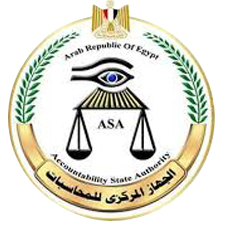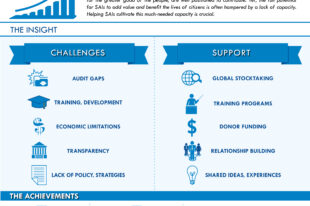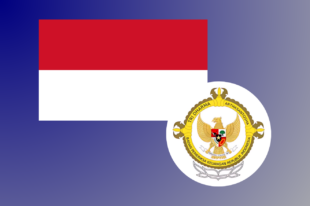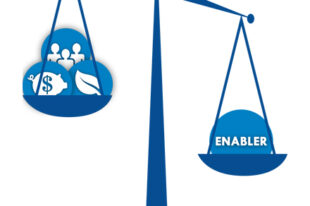From June through August 2021, the Accountability State Authority (ASA) of Egypt, the country’s Supreme Audit Institution (SAI), participated virtually in:
- The 25th UN/INTOSAI Symposium held from June 28-30, on “Working during and after the Pandemic,” and presented a research paper on “The Impact of the COVID-19 Pandemic on SAIs’ Organizational Capacities: Work Methods and Processes.”
- The 56th African Organization of Supreme Audit Institutions (AFROSAI) Governing Board proceedings on July 7, as well as in the 15th AFROSAI General Assembly on July 8-9, with the attendance of H. E. Counselor Hesham Badawy, ASA’s President. At the Governing Board meeting, the Court of Accounts of Senegal was appointed Chair of AFROSAI for the upcoming three years, and AFROSAI’s Strategic Plan 2021-2026 was adopted. In its capacity as Editor-in-Chief, ASA presented a report on the African Journal for Comprehensive Auditing for 2017-2020 that included the journal’s activities, new regulations, and executive procedures.
- The annual workshop of the INTOSAI Working Group on Audit of Extractive Industries (WGEI) from June 29 to July 1, on “Transparency Data Working for Communities.” ASA was invited to participate by the Arab Organization of Supreme Audit Institutions (ARABOSAI), within the framework of cooperation between ARABOSAI and AFROSAI-E, which organized the event. Participants discussed how to use data to improve transparency and accountability and to assess risks.
- The first meeting of the team responsible for developing ARABOSAI’s Strategic Plan 2023-2028 on August 11. ASA participated as a representative of ARABOSAI’s Institutional Capacity Development Committee as well as Audit on Sustainable Development Goals’ Committee.
- ARABOSAI’s first meeting, on August 17, to discuss establishing think tanks that will innovate new audit techniques and develop procedural guidelines that organizations can use in extraordinary circumstances. SAI Iraq, as Chair of ARABOSAI’s Institutional Capacity Development Committee, led the meeting, which aimed to define the scope and methodology of these think tanks, the timetable for carrying out their work, and the means of communication among their members.
Back To Top






